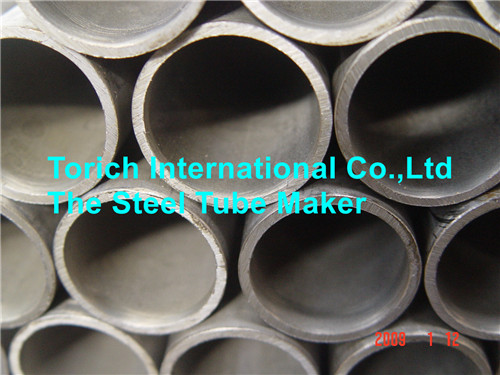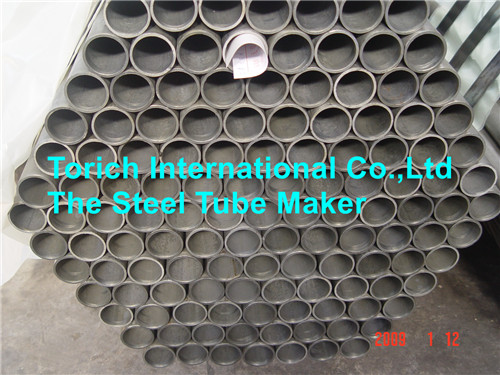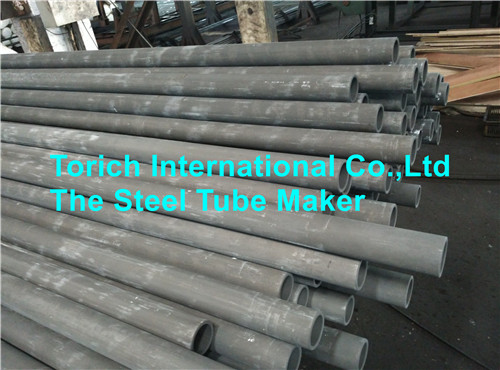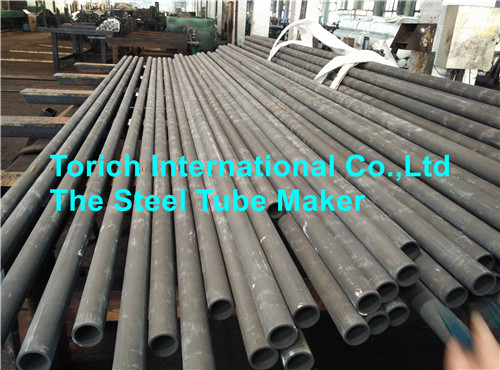Cold export of Foshan products is an indisputable fact. One of the key reasons is that due to the anti-dumping disputes under protectionism, ceramics is one of the most serious "victims." From January to October 2011, Foshan's foreign trade statistics were released, and the import and export volume exceeded US$50 billion in the first 10 months of this year. Foshan Customs has forecasted that this year's total import and export volume of Foshan is expected to be close to or slightly over US$60 billion, an increase of around 16%. In 2010, Foshan's total import and export volume was US$51.655 billion, an increase of 34.7% over the previous year.
However, unlike the situation in which the country’s foreign trade surplus narrowed, Foshan’s foreign trade in 2011 still maintained a surplus.
In October, the total value of foreign trade hit a new low of 8 months. According to statistics from Foshan Customs, from January to October 2011, the total value of imports and exports in Foshan was 50.17 billion US dollars, an increase of 19.8% over the same period of last year. Among them, exports were 32.17 billion U.S. dollars, up 19.8%; imports were 18 billion U.S. dollars, up 19.1%; cumulative trade surpluses were 14.17 billion U.S. dollars, up 19.6%.
From a month-to-month perspective, the impact of unfavorable factors such as the sluggish economic environment in Europe and the United States and weak external demand on foreign trade this year has been increasing since the second half of the year. Foshan's foreign trade continued to decline since hitting a record high in June. In October, the total value of Foshan's foreign trade hit a record low for eight months. The total value of imports and exports reached US$4.74 billion, which narrowed to less than US$5 billion, a decrease of 5.6% from the previous quarter. The total value of exports was US$3.03 billion, a decrease of 7.7% from the previous period; the total value of imports was US$1.71 billion, a decrease of 1.6% from the previous month; the monthly trade surplus was US$1.33 billion.
From the perspective of five districts in Foshan, the growth rate of foreign trade exports has dropped significantly, and the growth rate of Shunde District, Gaoming District, Sanshui District and Chancheng City has fallen by a large margin. From January to October, the total export value of Shunde District was US$14.06 billion, an increase of 18.1%, the growth rate decreased by 5.7 percentage points over the first half of the year, the South China Sea Area decreased by 1.4 percentage points, Chancheng City decreased by 4 percentage points, and Gaoming District decreased by 6.1 percentage points. Sanshui District fell 6.3 percentage points.
The consecutive decline in the scale of foreign trade in April, the two big mountains in which Foshan’s foreign trade growth rate has been significantly narrowed this year is the prevalence of the European debt crisis and trade protectionism.
The rapidly expanding European debt crisis has gradually increased the impact of trade between Foshan and the European Union. In particular, since the second half of the year, the crisis has further aggravated, resulting in a slowdown in the economic development of the European Union and a reduction in demand. The impact of Foshan on the European Union’s trade has further shown its impact on the European Union. The growth rate gradually narrowed. Customs statistics show that from January to October this year, Foshan exported 5.61 billion U.S. dollars to the EU, an increase of 13.1 percent, which was 9.2 percentage points lower than the 22.3 percent growth rate in the first quarter and 2.3 percentage points lower than the 15.4% growth rate in the first half of the year. From January to October, the growth of exports of major electromechanical products such as Foshan air conditioners and microwave ovens to the EU remained stable, but the growth rate of labor-intensive products was only 7.5%.
At the same time, the impact of trade barriers has become increasingly apparent. Ceramic tile products have been affected by EU anti-dumping cases. The number of exports has dropped by 24.4% and the value of exports has dropped by 20.1%.
Foshan Customs analysis: At present, the debt crisis in Europe continues to develop, economic recovery in Europe and the United States face difficulties, trade protectionism prevails, external demand decline, coupled with the rise in *** appreciation and processing costs, leading to increased foreign trade uncertainty and unfavorable factors. “Since July, the foreign trade volume of Foshan in a single month has declined for four consecutive months, and both exports and imports have experienced a slowdown. In October, the total value of foreign trade in Foshan's foreign trade has shrunk to less than US$5 billion. It is expected that the entire year of 2011, Foshan Foreign Trade. The growth rate of the total value of imports and exports is gradually falling, and the pattern of high and low growth before and after the growth rate, the total import and export volume is expected to be close to or slightly over US$60 billion, an increase of about 16%.â€
Deep ceramic anti-dumping encounter "surrounding the trend"
The export growth rate dropped, and the scale of foreign trade fell for the fourth consecutive month. It has become an indisputable fact that the export of Foshan products has become cold. One of the key reasons behind this is precisely because of the anti-dumping disputes under protectionism, and ceramics are undoubtedly the most serious "victims."
It is reported that this year's Foshan ceramics industry has encountered Argentina, Peru's anti-dumping adjustments, South Korea has also extended the period of anti-dumping duties imposed on China tiles, anti-dumping countries have formed a roundabout trend in China.
EU anti-dumping shocked the industry. On September 15, the EU began to impose anti-dumping duties on tiles from China. In previous rulings, two companies in Foshan obtained separate tax rates, and more than 30 responding companies received average tax rates, while a large number of SMEs A high rate of 69.7% was levied because there was no response.
The EU anti-dumping shocked the ceramics industry in Foshan. According to Chen Yanbin, chairman of Foshan Astra Goff Ceramics, according to this tax rate, Foshan ceramics exports will be seriously affected. According to media reports, one third of the nationwide enterprises will face a transition or closure and tens of thousands of ceramics workers will be affected. Foshan's export of tiles to the EU from January to July (120 million US dollars, a year-on-year decrease of 16.5%) seems to confirm this situation.
However, the EU anti-dumping is really hitting the Foshan ceramics industry? This view is very controversial at present. According to customs data, at present, the EU is the third largest exporter of Chinese ceramic tiles, with exports accounting for 8%-9.5% of total exports of ceramic tiles and 10%-12% of total exports.
The situation in Foshan is similar. According to statistics, the total export volume of Foshan ceramic tiles increased from 1.5 billion U.S. dollars in 2007 to nearly 2 billion U.S. dollars in 2010, of which ceramic tiles exported to the EU account for about 10% to 15%.
At present, 80% of ceramic tiles produced in Foshan are sold domestically, and exports account for only 20% of the total output. In other words, tiles exported to the EU only account for about 2% to 3% of the total output of Foshan ceramic tiles. It seems that it is still difficult to cause heavy damage to Foshan ceramic tiles. . Many people in the industry believe that the fundamental reason for the idle capacity of ceramic companies and the large area of ​​kiln shutdown is domestic factors.
In recent years, the South American market has been hit hard. In recent years, ceramics and aluminum profiles can be described as the "high-risk" industries of Foshan's export trade, and this year's momentum aluminum profile obviously "to give way" ceramics. It is reported that this year's Foshan ceramics industry has encountered anti-dumping adjustments in Argentina and Peru, and South Korea has also extended the period of imposing anti-dumping duties on Chinese tiles.
Ceramic companies are gradually turning their attention to emerging markets in South America. The data shows that in the past five years, the total volume of Chinese tile exports to Brazil increased from 148,000 square meters to 19 million square meters, an increase of more than 100 times.
However, explosive growth also attracted the attention of South American countries. In July this year, Argentina launched an anti-dumping investigation against Chinese tiles, followed by Peru’s similar “trade war†in August.
Lan Weibing, director of the Foshan Ceramics Office of the China Ceramic Industry Association, told the author that in September Brazil was also preparing for the filing of an anti-dumping investigation against ceramics in China, and that it would have results as early as next January. On September 6, Brazil has increased the ceramic tariff originating in China from the original 15% to 35%.
The author learned that in July and August before this, Argentina and Peru launched anti-dumping investigations against ceramic enterprises in China. At present, anti-dumping countries have already formed a roundabout trend toward our country. There are South Korea to the east, Thailand, Pakistan, India and Peru and Argentina to the south, and European countries to the west.
Once Argentina, Peru, Brazil and other countries have announced the results of anti-dumping rulings, ceramic enterprises have been blocked in the South American market, and Foshan ceramic exports may face real difficulties. The Nanfang Daily reporter Jia Yu commented that the export was sluggish and the domestic demand was not prosperous.
When the financial crisis erupted in 2008, when the company complained about the coming winter, the hot “hot charcoal†of 4 trillion domestic demand was immediately sent to the company. “The cold winter is not coldâ€, which was the feeling of many companies at that time.
However, when the European debt subprime mortgage crisis escalated this year and the United States was caught in the quagmire of economic recovery, the "hot coal" was gone. On the contrary, waiting for the company's only macro adjustment, cold prices, and the real estate market were sluggish, "it is more difficult than in 2008. "Become the most accepted view nowadays.
On the one hand, the sluggish consumer prices in Europe and the United States have caused the export to suffer. The annual growth rate of exports is expected to be only 16%, which is a huge difference from the increase of 34.7% last year. On the other hand, under this year's series of real estate control measures, the domestic real estate market has experienced a significant decline in sales, and the construction of 10 million units in 2011 and 36 million units in the next three years have been less advanced than the corresponding decline in commercial housing transactions. As a result, this year's ceramics, furniture, textiles and other home markets have also been seriously affected. According to the person in charge of Dongpeng Ceramics, the end market's response is very obvious and the business is much worse.
The root cause of real estate sluggishness - monetary tightening, also makes businesses suffer. Although bank credits started to tilt toward small and micro enterprises, the “incremental†is far from making up for the shortfalls in the company's capital chain caused by factors such as the cost of raw materials, labor costs, and the continuous rise in the exchange rate.
“80% of companies in Foshan are tight on capital and 20%-30% feel very nervous. They are expected to change only after May next year.†“The ** for economic development will be partially reserved Next year, we will help small and micro businesses to spend the most critical period."
This is the two words spoken by the deputy mayor of Foshan City on different occasions. He has released two obvious signals: First, the most difficult time may not be yet. Second, 4 trillion is already history. There is no "hot coal" in the winter and companies need to hold on.
TORICH is a main producer and exporter of Seamless Steel Tubes and Pipes in China.
Seamless Steel Tubes and Pipes are produced with Round Mandrel and Die to produce Round Shapes of Seamless Steel Tubes,
Seamless Precision Steel Pipes
Seamless Heat Exchanger Steel Pipe
Seamless Boiler Steel Pipes
Seamless Structural Steel Pipes
Seamless Mechanical Steel Pipes
Seamless Alloy Steel Tubes & Pipes
Seamless Steel Tubes and Pipes Size range is:
O.D. 4-350mm,
W.T. 0.5-30mm,
Length: according to customer`s requirement and agreement
Steel Grade:
Carbon Steel Grade:
ST35.8, ST37.0, ST44, ST52;
E155, E195, E215, E235, E275, E355;
195GH, P235GH, P265GH, P195TR1, P195TR2, P235TR1, P235TR2, P265TR1, P265TR2;
SAE1010, SAE1020, SAE1026, SAE1035, SAE1045;
Carbon steel tube: SA178, A179, A192, A210, SA213, SA214, etc.
Honing seamless steel pipes (Hydraulic Cylinder Steel Tube, pneumatic cylinder tube) produced by undergo cold forcing and annealing for a cured tensile strength reaching over 52kg/cm², before the pipes are milled by precision machinery, regulating the tolerance in inner diameter at an H8-H9 level, with surface roughness at between Ra 0.2μm, which helps to extend the life cycle of the cylinder, and reduces the wear and tear of the seal.




Seamless Steel Tubes
Seamless Steel Tubes,Seamless Carbon Steel Tube,Oil Cylinder Steel Tube,Precision Seamless Steel Tube,Hydraulic Cylinder Steel Tube
Torich International Co.,Ltd--The Steel Tube Maker , http://www.chinasteeltubepipe.com